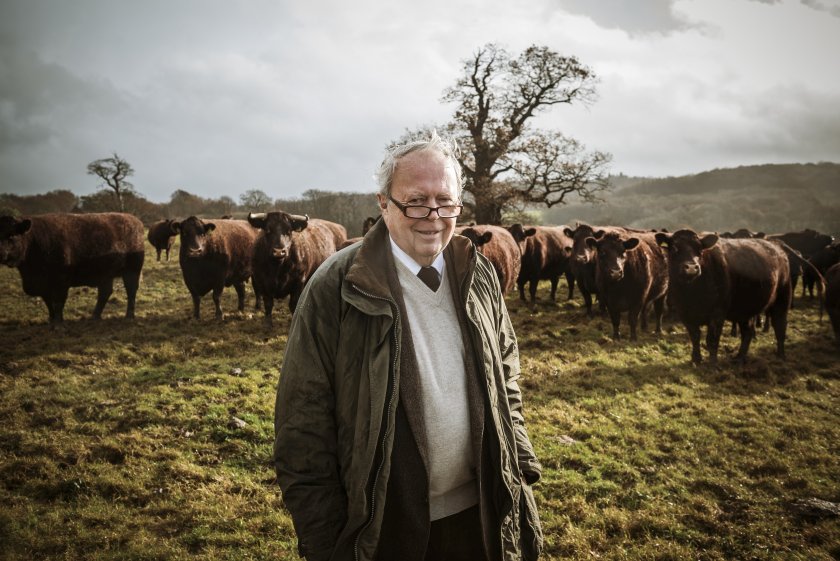
A Sussex farmer who recently appeared on a BBC food series has launched a service giving customers the chance to buy beef from his world-famous herd of Traditional Sussex Cattle.
Lord William De La Warr has kept the Sussex breed of cattle, with its distinctive rich red-brown coat, for 20 years at Buckhurst Park, which has been in his family for 900 years.
The animals are not crossed with other breeds, making it the largest ‘Traditional’ Sussex herd in the country.
The beef was recently described as 'incredible' by Michelin-starred chef Marcus Wareing, who travelled to the farm for his BBC series Tales from a Kitchen Garden.
“It’s so tender – absolutely outstanding in every way,” he said as he cooked sirloin and rib-eye steaks.
The Sussex Cattle Society has recognised Traditional Sussex Cattle in that as far as their records go back, circa 1950, they have never been crossed with any other breed and the cows are given a capital “T” after their tag number.
Famous for its marbling and flavour, meat from the herd has always been destined for plates both at home and in top-quality restaurants.
Now for the first time, the highly sought-after meat will be sold online, having been hung and matured on the bone for 28 days.
“Many people, myself included, believe frozen beef is more tender than fresh beef so whenever I eat my own beef it’s always been deep frozen,” said Lord De La Warr.
“We’ve worked hard to promote the pure Sussex line and are proud to have animals with a reputation for producing a flavoursome and quality meat."
He added: “We keep them on an entirely grass-fed system. They are hardy beasts, phenomenal at converting grass into meat and largely self-sufficient.
"With their small feet, they are particularly suited to the wet clay soil which is found in the Weald. The animals are lovely to keep, too – they’re so calm.
"I can’t imagine this estate without Sussex cattle grazing. They are very special.”
Fearing the pure lines could be lost as more animals are crossed with other breeds, Lord De La Warr is also spearheading efforts to promote the traditional line far beyond the South East of England.
He has launched the Traditional Sussex Breeders Club, which will act as a network for buying and selling animals, improving the gene bank and sharing best practice.
The Traditional Sussex breed isn’t currently recognised by the Rare Breed Survival Trust, but Lord De La Warr thinks there are well under 200 Traditional breeding cattle left.
“This is one of the oldest breeds of cattle in the country," he said, "When the Normans arrived in 1066, they encountered red cattle in the Weald of Sussex and Kent, which were the direct forebears of the pure line we see today."
According to land agent Jonathan Morris of CLM, the Sussex breed could represent a chance for farmers looking for low-input, low-cost systems, producing high-quality beef.
“With ever-more focus on grass-fed, native breeds, the Sussex makes commercial as well as environmental sense," Mr Morris said.
“As subsidies for direct agricultural production fall, farmers need to find new, market-focused ways to generate revenue – and dealing with customers direct is a way of adding value."
